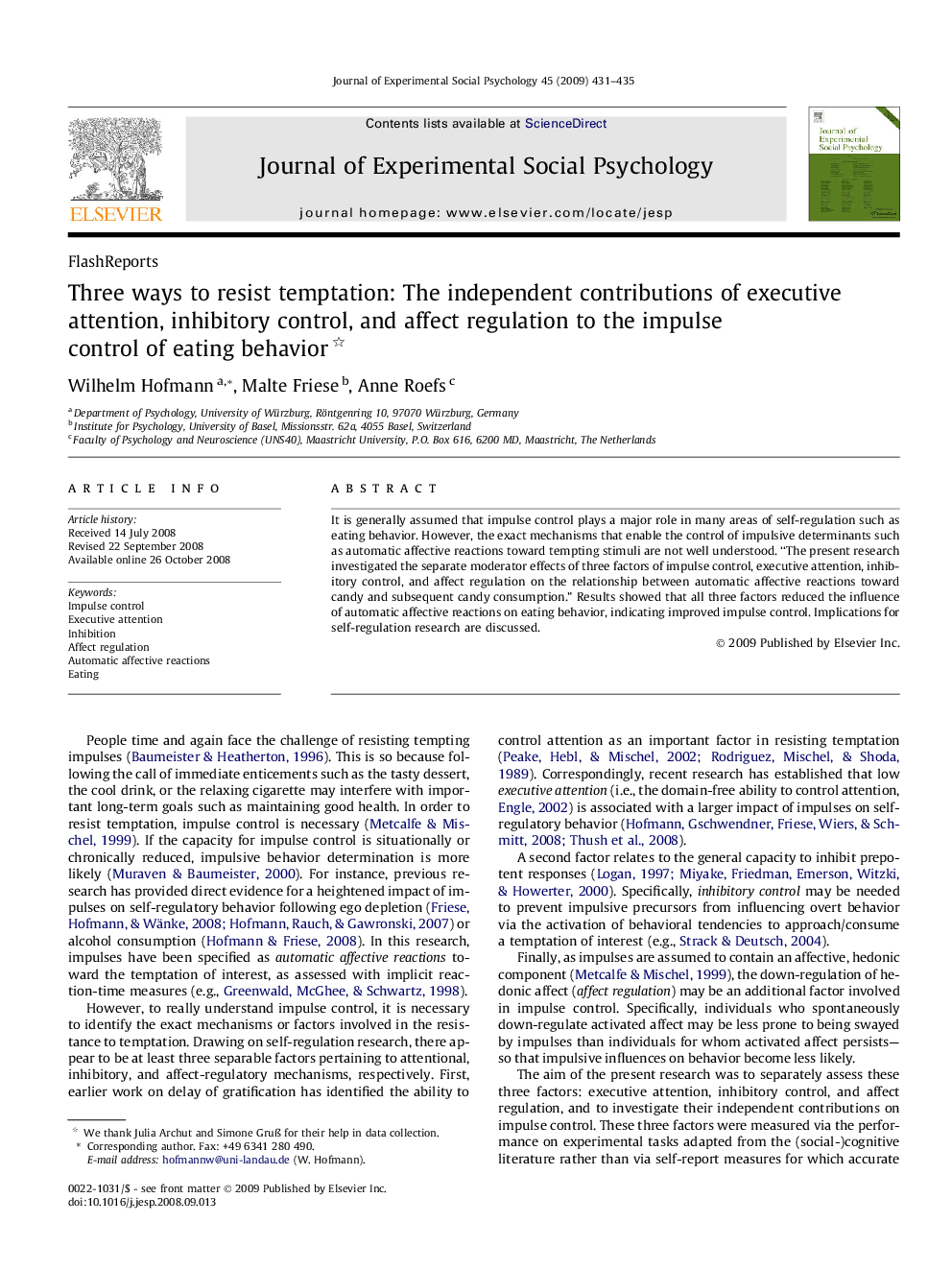| Article ID | Journal | Published Year | Pages | File Type |
|---|---|---|---|---|
| 948808 | Journal of Experimental Social Psychology | 2009 | 5 Pages |
It is generally assumed that impulse control plays a major role in many areas of self-regulation such as eating behavior. However, the exact mechanisms that enable the control of impulsive determinants such as automatic affective reactions toward tempting stimuli are not well understood. “The present research investigated the separate moderator effects of three factors of impulse control, executive attention, inhibitory control, and affect regulation on the relationship between automatic affective reactions toward candy and subsequent candy consumption.” Results showed that all three factors reduced the influence of automatic affective reactions on eating behavior, indicating improved impulse control. Implications for self-regulation research are discussed.
